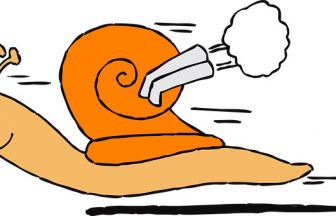「怒り」|「anger」「rage」「fury」「wrath」の違いと使い方
「怒り」が何かと話題になっている。
英語の「怒り」の使い分けを覚えておこう。
「怒り」|「anger」は一般的な語
「anger」は怒りを表す一般的な語。anger は通例加算名詞で使う。
こんなことにならないように注意が必要。
I didn’t realize the extent of his anger.
「彼があそこまで起こっているとは思いませんでした」
職場でありそうなこと。
He could no longer contain his anger at the unreasonable way his boss had acted.
「上司のあまりの理不尽な態度に彼は怒りを抑えることができなかった」
※ no longer「もはや~ない」 contain one’s anger「怒りを抑える」 unreasonable「理不尽な」
都会も地方も、住民向けの説明会は慎重に。
His thoughtless words provoked the anger of the residents in the area.
「彼のうかつな一言がその地域の住民の怒りを買ってしまった」
※ provoke the anger「怒りを買う」
「怒り」|「rage」は激しい怒り
「rage」は激しい怒りを表す語。不定冠詞をともなうことがある。また報道関係で怒りによる暴力行為を表すときにも使われる。
悪い知らせに怒ることもある。
He was blue in the face with rage to hear the news.
「彼はその知らせを聞いて青筋を立てて怒りました」
いたずらの度が過ぎるとこうなります。
Mom finally burst into a fit of rage when the mischief went too far.
「あまりのいたずらに、とうとうママのかんしゃく玉が破裂してしった」
※ mischief「いたずら、わるさ」
「怒り」|「fury」は激しい怒り
「fury」は激しい怒りを表す語。不定冠詞をともなうことがある。
怒りはなるべく抑えよう。
He burst out of the room in a fury at his boss’s insulting comment.
「上司の軽蔑の言葉に、彼は怒って部屋を出て行った」
※ insulting comment「軽蔑の言葉」
何を聞かれても落ち着きが肝心。こうはならないように。
His face flushed with fury at the reporter’s rude question.
「記者の失礼な質問に怒って彼の顔はまっ赤になった」
「怒り」|「wrath」は「激怒」
「wrath」は「激怒」を表す「かたい」表現の語。
国内外のいろいろな神話や伝説にこんな話がよく出てくる。
Legend has it that the princess threw herself into the sea to appease the wrath of the sea god.
「伝説では、その姫が海に身を投じ、海神の怒りを鎮めたと言われています」
※ appease「なだめる、鎮める」
こんなことにならないようにご注意!
His remark brought the former deputy mayor’s wrath down on him.
「彼の発言は元助役の逆鱗に触れてしまった」
※ former deputy mayor「元助役、元副町長」
神の怒りの象徴は「the grapes of wrath」
これを John Steinbeck が映画にもなった彼の小説の題名に使った。











